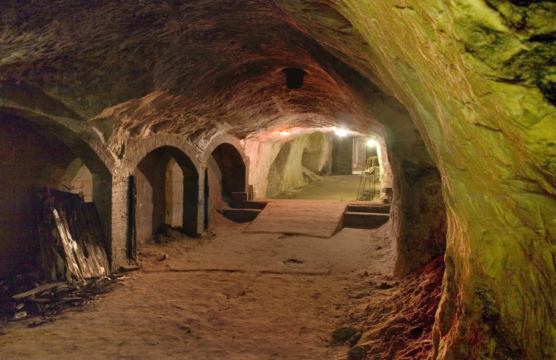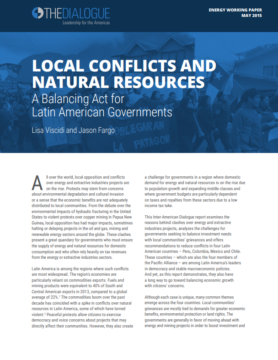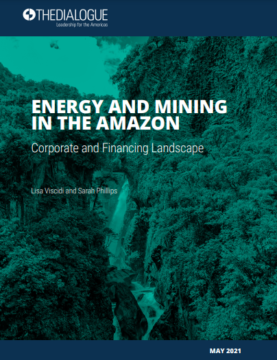
Energy & Mining in Colombia
Colombia has to remain competitive with other major producers such as Mexico to attract needed investment in extractive industries.
Colombia has to remain competitive with other major producers such as Mexico to attract needed investment in extractive industries.
Conflicts over energy and natural resources are leading to social turmoil and posing serious challenges for investment projects all over Latin America. To better manage such conflicts, Latin American governments must step up their involvement in the consultation process and communicate more effectively with local communities about potential social, environmental and economic impacts, according to a new report by the Inter-American Dialogue.
The Amazon rainforest, one of the world’s most important ecosystems, faces environmental impacts from hydroelectric dams, oil and gas drilling sites, and mining projects. A new database and analysis by the Inter-American Dialogue reveals that state-owned enterprises, as well as small and mid-sized international companies from a handful of countries, operate the largest share of such projects in the Amazon region, meaning these companies have a substantial influence over the implementation of environmental and social safeguards.
As part of his energy and climate campaign promises, Colombian President-elect Gustavo Petro’s intention to halt oil exploration and pilot fracking projects and accelerate the transition to renewable energy raises questions about the direction of energy policy in the country.


 Video
Video